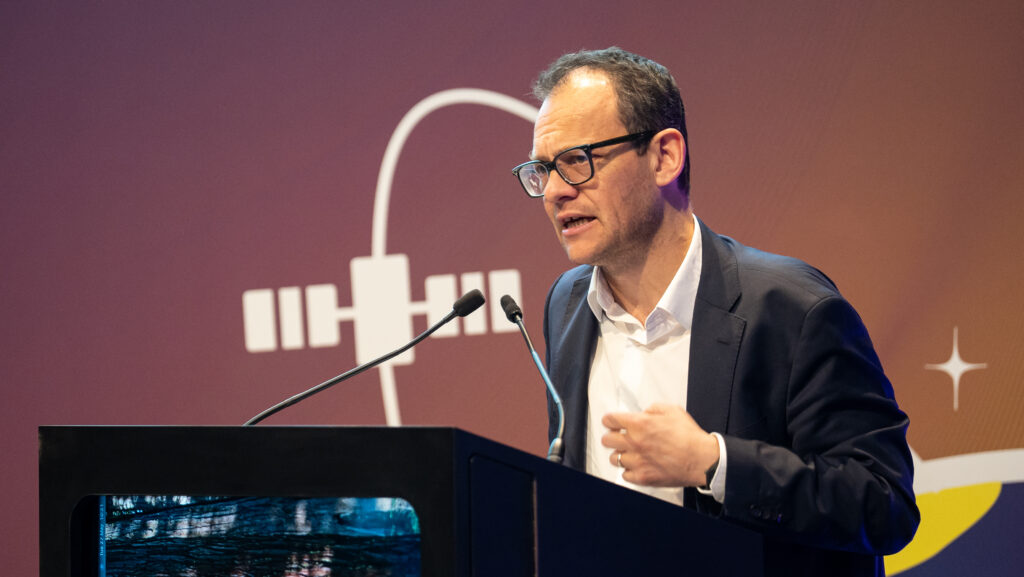By Chris Forrester

Stéphane Israël, now Partner at Boston Consulting Group, but well known from his time running Arianespace, was at the event to carry the flag for the European IRIS2 mega-project worth at least €10 billion. He explained the key partners in the SpaceRISE consortium (SES, Eutelsat, Hispasat) and how Europe’s smaller players could play a part in the overall project.
First launch was scheduled in 2029, and full deployment by 2032.
Israël explained that the cost of launch had tumbled over the past few years, and was now getting close to $6 per kilo. But the world’s satellite activity was “dominated” by SpaceX and Starlink. He stressed that Europe was seeking an independent solution and capacity to differentiate itself from Starlink. This also applied to military capacity and services and that Ukraine showed how EU-Readiness was very much needed, and IRIS2 was very much part of this overall package.
He extolled the virtues of his old employer, Arianespace, and the merits of its new Ariane 6 rocket.
He admitted that challenges remained for IRIS2 and the interfaces between the various members of the consortium, its satellite fleets, and the costs. He said that there could be a financing gap of close to €1 billion, and the related benefits of revenues over the 12-years of the concession.
A major challenge was readiness, and there is an undoubted willingness from the consortium to meet the deadlines although it is far from sure today that all would be ready by 2029. He also explained that both Italy and Germany might still be working to their own satellite projects, and thus the questions remained how these independent projects would be aligned with IRIS2.
